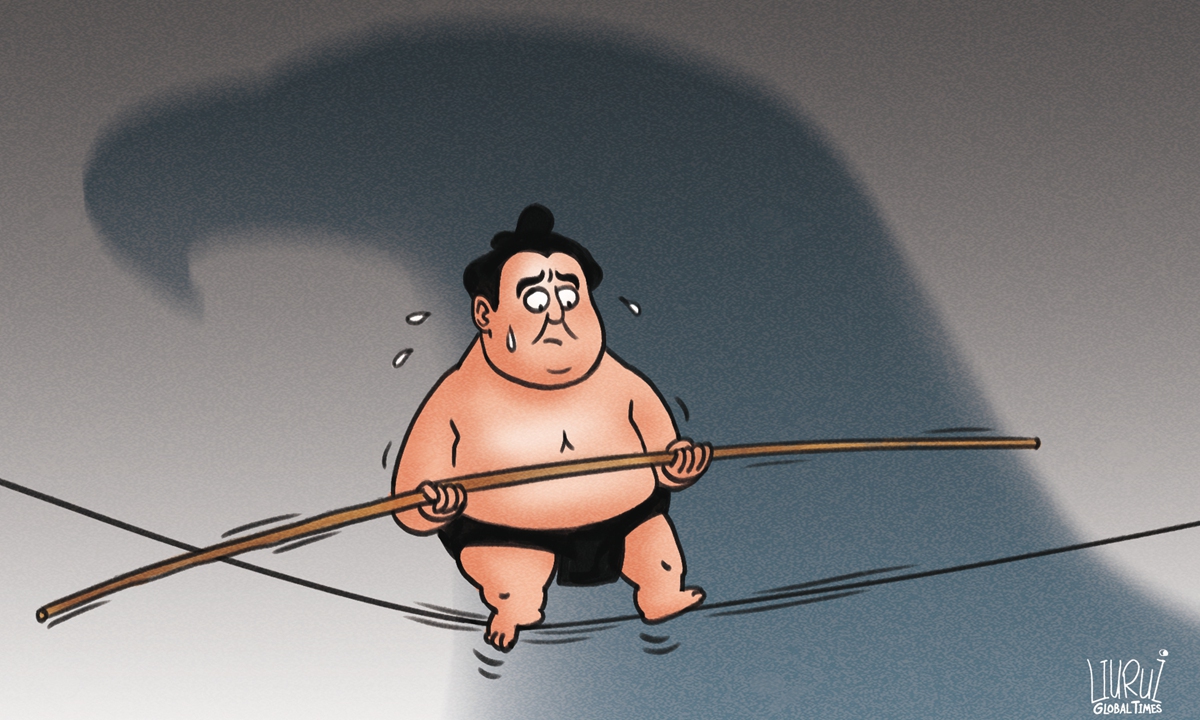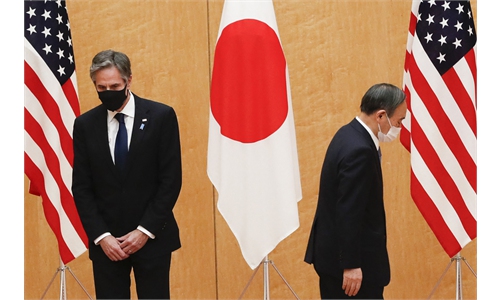GT Voice: Japan shouldn’t bow to US pressure to sanction China

Illustration: Liu Rui/GT
As Japanese Prime Minister Yoshihide Suga is scheduled to visit the US for a summit with US President Joe Biden on April 9, it is reported that Tokyo is facing intensifying pressure from Washington to join the latter's sanctions against China. Some in Japan is also reportedly pressuring Suga to join the US and some Western countries to impose sanctions on China.This will be Biden's first in-person meeting with a foreign leader since taking office in January, which has attracted widespread attention and speculation. Among other topics, many observers generally hope that the meeting could offer some clues as to whether the Suga government will still maintain its diplomatic independence in face of mounting pressure amid an ever-escalating rivalry between the US and China.
Various media reports and analysis already suggested that China is expected to be a hot topic during the upcoming meeting, and Suga is under pressure from both some Western allies and domestic right-wing politicians to impose sanctions on China over unsubstantiated claims about issues related to Northwest China's Xinjiang Uygur Autonomous Region.
Over the past few weeks, Japan's attitude toward China has been rather ambivalent. On the one side, a joint statement issued by the US-Japan Security Consultative Committee, or 2+2, after a meeting on March 16 contained notably tougher rhetoric on China, saying China's behavior presents challenges to the international community. That drew a stern response from Beijing, where officials criticized Japan for "acting as a strategic vassal" of the US and inviting "the wolf into the house."
On the other side, Japan has so far not followed some Western countries to impose sanctions on China, which some observers believe indicates its attempt to remain flexible on relations with China.
For a long time, Japan has managed to maintain a delicate diplomatic balance in its relationship with both the US and China, which enables it to maximize its own national interests. But when China-US tensions intensify, such diplomatic flexibility is also bound to face increasing difficulty.
Japan's reluctance to really confront China may be explained by its enormous economic interest with China. China has long been Japan's largest trading partner and largest export market, and the risk of deteriorating bilateral economic relations would be disastrous for the Japanese economy, which has already been hit hard by the pandemic.
In 2020, total trade between China and Japan reached $317.54 billion, with Chinese imports from Japan up 1.8 percent to $174.88 billion. Moreover, with the signing of various multilateral free trade agreements like the Regional Comprehensive Economic Partnership, or RCEP, China-Japan bilateral trade has a great potential to grow further. However, a shift in diplomatic policy toward China could hurt bilateral relations and trade.
China has made its position clear to the world that there will be consequences for those who take the initiative to undermine its sovereignty, security and development interest. That should make it very clear for Japan too that if it gives in to US pressure and joined other to impose sanctions on China, it would definitely draw some harsh backlash from China. It is hoped Japan will keep a sober head in the face of pressure and avoid shooting itself in the foot.

